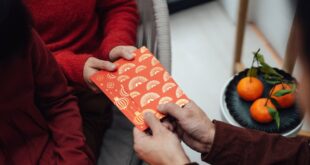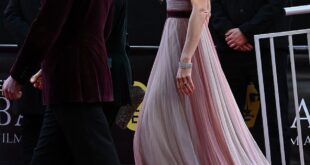One of the many Platinum Jubilee exhibitions that are taking place looks at the most reproduced image ever created — of The Queen on a postage stamp.
Exhibits in the exhibition include the three main portraits used by Royal Mail as well as a selection of Omnibus editions, Jubilee series and a collection of the ever-popular errors. There’s the famous stamp missing the Post Office Tower, but less well-known images such as the 1964 set of stamps from Southern Rhodesia missing the Queen’s head.
There’s also something that only the Commonwealth could easily achieve, what’s known as an Omnibus, a range of stamps from many countries that all share the same design, and several such batches were made for various Jubilees over the decades. As you would expect, there’s a whole section on the 1952 three-quarter profile of the Queen taken by Dorothy Wilding. While her photo was being perfected, a number of artists were asked to design the stamps that the Queen’s head would adorn.

A later design is the one most of us will be familiar with, the half-profile image by Arnold Machin, which wasn’t a photo, but was carved and then reproduced for coins and stamps. It’s been estimated that the image has been reproduced over 200 billion times, making it the most reproduced image in history.
One of the more novel uses for postage stamps has to be the papier-mache violin made from thousands of stamps. In a way, a musical instrument has been made from the Queen. As an exhibition, it shows off the range of stamps that have been produced during the Queen’s reign, here in the UK and the Commonwealth. It’s modest in size, but then again, so are stamps.

The exhibition, Queen Elizabeth II Platinum Jubilee Exhibition is at Stanley Gibbons on Strand until Friday 24th June. It’s open when the shop is open (Mon – Sat: 9:30am – 6pm) and entry is free.

SUPPORT THIS WEBSITE
This website has been running now for over a decade, and while advertising revenue contributes to funding the website, it doesn’t cover the costs. That is why I have set up a facility with DonorBox where you can contribute to the costs of the website and time invested in writing and research for the news articles.
It’s very similar to the way The Guardian and many smaller websites are now seeking to generate an income in the face of rising costs and declining advertising.
Whether it’s a one-off donation or a regular giver, every additional support goes a long way to covering the running costs of this website, and keeping you regularly topped up doses of Londony news and facts.
If you like what you read on here, then please support the website here.
Thank you
Source link


